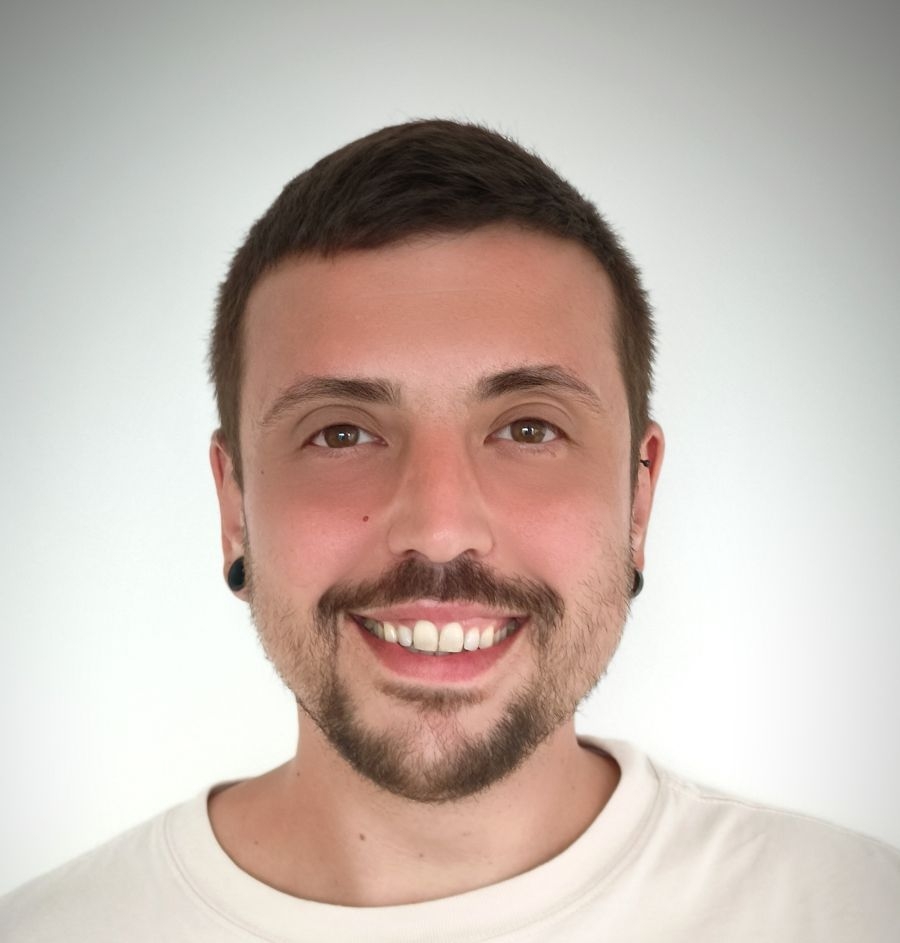Interview with our new Postdoc Diego Barriales
Diego Barriales San Miguel completed his Ph.D at the CIC bioGUNE, Bilbao, Spain, where he focused on elucidating the long-term reprogramming and functional programs induced in phagocytic cells following exposure to whole, live bacteria. This phenomenon, known as trained immunity or innate immune memory, led him to the Biobizkaia Health Research Institute (Galdakao, Spain) for a postdoctoral position. Diego joined us on September 1st, and we are thrilled to have his expertise in immunology complementing our research group. His knowledge adds a valuable dimension to our work, and we are excited about the collaborations ahead.
How come you decided to work in our lab and what are you hoping to learn from working with us?
"Studying the microbiota and its metabolic products, and trying to connect them with human physiology, is a very complex challenge that requires the close collaboration of diverse areas of expertise. Fortunately, groups such as the Bäckhed lab have built multidisciplinary teams over the years where you can find whatever expertise you need to address your questions and fill your own knowledge gaps. Besides, it is hard not to notice the group’s impressive publication record, which is proof that the lab’s dynamics are working properly. I would like to expand my knowledge of host-microbial metabolic interactions while also gaining technical skills in areas such as microbiology, histochemistry and bioinformatics."What is your research focus and your role in the group?
"I’m a postdoctoral fellow in the lab with a strong background in immunology, and because of that, I work at the interface of the different research lines already established here. The immune system is finely regulated by our microbiota (and vice versa), so I will try to explore the immune compartment across the various contexts and experimental models being studied in the lab while also carrying out my own project."How come you choose this field of science?
"During my PhD thesis, I had the opportunity to participate in a project in which we characterized a microbiota-derived compound that exerts potent anti-inflammatory properties in phagocytic cells, leading to protection in different murine models of inflammation. As a result, I became interested in the complexity and potential of the microbiota and its derived metabolites to shape homeostasis and disease."What would you like to achieve with your science?
"I hope that the results arising from my research will lead to the identification of “in-house” produced microbial metabolites as novel therapeutic approaches for cardiovascular disorders such as atherosclerosis"What is your impression so far?
"At the beginning, especially if you are not an expert in microbiota or metabolism, you may feel overwhelmed by the wide range of knowledge areas and the deep expertise of each member in their respective fields. However, you soon realize that everyone is very kind and always willing to help and share their knowledge in a highly cooperative environment. In my opinion, this cooperative spirit latter is the key to achieving your professional goals while also enjoying the time you spend with the people around you. In addition I think Gothenburg is a beautiful city with plenty of activities and events to enjoy, no matter what your interests are. And if you love nature or hiking, there are several green spaces within the city and of course, even more just a short trip outside."
Explain your research to someone who is not familiar with science
"Have you ever heard the saying ‘you are what you eat’? When we eat, part of the food is digested and used by our own cells, but much of it is actually processed by the bacteria living inside us. As they digest our food, these bacteria produce and release a wide variety of compounds into our bodies, which can be beneficial or harmful, depending on the context. In my research, I focus on identifying which of these compounds might help strengthen our defenses, the immune system, and protect us from heart disease."What do you do to promote a healthy gut microbiome and/or health in general?
"I try to follow a balanced diet that includes all the necessary nutrients in the right proportions, and I also exercise regularly."
A warm welcome to our team Diego!





